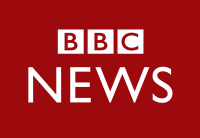Pros:
- Harper is a good leader.
- They have finally brought Canada a stable majority government, representing Canadians across the country.
- During the 2011 election, the Conservatives showed that they were proud to be Canadian.
- I really like their promise to forgive a portion of student loans for doctors and nurses in under-served rural communities.
- They have brought our country out of a recession and strengthened the Canadian dollar (It's hard to do both).
- They have withdrawn from our combat role in Afghanistan and emphasized the defence of our own country instead.
- During the 2011 election, the Conservatives showed that they were proud to be Canadian.
- I really like their promise to forgive a portion of student loans for doctors and nurses in under-served rural communities.
- They have brought our country out of a recession and strengthened the Canadian dollar (It's hard to do both).
- They have withdrawn from our combat role in Afghanistan and emphasized the defence of our own country instead.
Cons:
- They want to get rid of the per-vote party subsidy, which helps gives individual votes more impact.
- They want to abolish the useful long gun registry, which keeps gun owners accountable for their weapons. (For more information, see my post The Long Gun Registry)
- Update: I am worried by the extensive spending cuts introduced in the 2012 federal budget, which will inevitably result in less effective government services. Less government is not always better!
- They want to abolish the useful long gun registry, which keeps gun owners accountable for their weapons. (For more information, see my post The Long Gun Registry)
- Update: I am worried by the extensive spending cuts introduced in the 2012 federal budget, which will inevitably result in less effective government services. Less government is not always better!
New Democratic Party (NDP) - Thomas Mulcair
Pros:
- During the 2011 election, they made a special effort to show they were proud to be Canadian.
- They want to keep the long gun registry and per-vote subsidies.
- They want to keep the long gun registry and per-vote subsidies.
Cons:
- With over half of their MPs now from Quebec, they are stuck having to serve that province's interests.
- With over half of their MPs now from Quebec, they are stuck having to serve that province's interests.
- They are anti-oilsands, even though the oilsands are a very important part of Canada's economy.
Liberals - Bob Rae (interim leader)
Pros:
- They also promised loan forgiveness and benefits for doctors and nurses going to rural communities.
- The party wants to keep the long gun registry and per-vote subsidies.
- Update: They recently decided to endorse the legalization of marijuana (probably in an attempt to regain support from young Canadians). Of course, this move could be a "pro" or "con" depending on your view of marijuana.
- The party wants to keep the long gun registry and per-vote subsidies.
- Update: They recently decided to endorse the legalization of marijuana (probably in an attempt to regain support from young Canadians). Of course, this move could be a "pro" or "con" depending on your view of marijuana.
Cons:
- Their leadership problem is very serious. The party has been plagued with unpopular leadership lately, and it appears that they still are unable to find a good leader. They need someone who can re-establish the identity of the party and inspire people to support them after Canada rejected them in the 2011 election.
Bloc Québécois - Daniel Paillé
Pros: Um... I can't think of any.
Cons:
- They are anti-Canadian and want Quebec to separate.
- They only run in the province of Quebec and only support that province's interests.
- They seem to be against multiculturalism.
- The Bloc was decimated in the 2011 election and lost their strong leader Duceppe. Their future looks bleak.
- The Bloc was decimated in the 2011 election and lost their strong leader Duceppe. Their future looks bleak.
Green Party - Elizabeth May
Pros:
- Elizabeth May claims she wants to make Canadian politics less partisan and more respectful.
- The party wants to legalise marijuana (again, this could be a good or bad thing depending on whether or not you think the drug should be legal).
- The party wants to legalise marijuana (again, this could be a good or bad thing depending on whether or not you think the drug should be legal).
Cons:
- They are strongly anti-oilsands.
- They want a carbon tax, which is highly impractical.
- They promote global warming alarmism. I quote from their website:
"It is estimated that climate change now claims the lives of over 315,000 people annually and is expected to create 700 million environmental refugees by mid-century."
"It’s important that we all pitch in to avert a climate catastrophe."
(Note: The average global temperature has changed less than one degree in the last hundred years. The estimates quoted are mere speculation on what would happen if the temperature changed dramatically, which is why I call it alarmism.)















